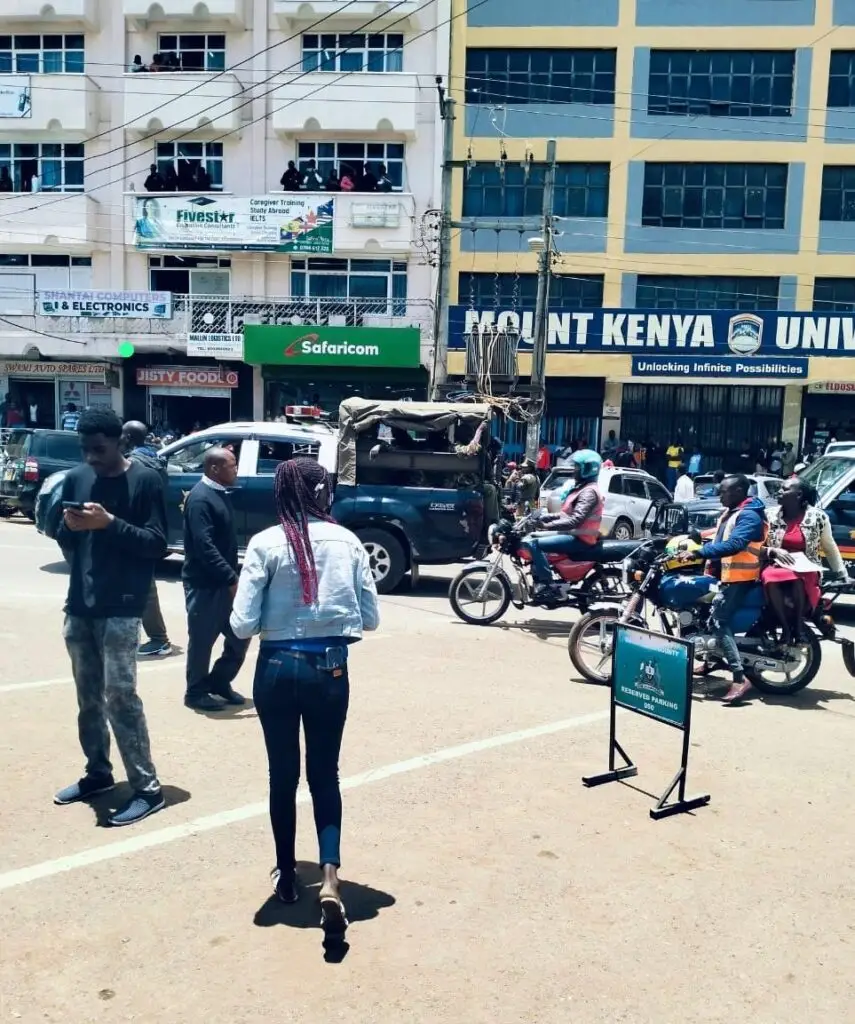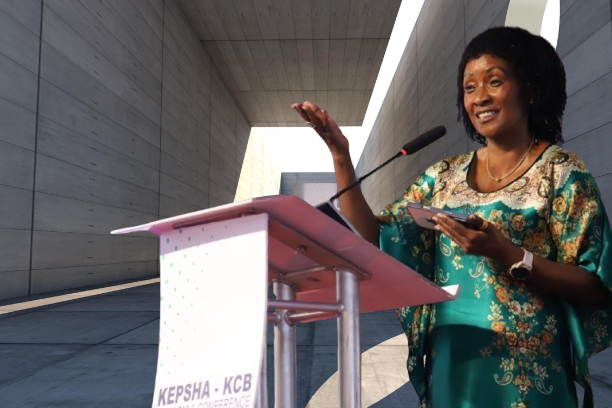Introduction: The Current Landscape of University Protests

In recent months, universities across the country have witnessed a significant escalation in staff protests, primarily driven by the urgent demand for salary adjustments. This wave of unrest has not only attracted media attention but has also raised concerns regarding the potential implications for higher education institutions. University staff have officially kicked protests on the following universities: Seku University, Multimedia University, Masinde Muliro University, Kirinyaga University, Laikipia University, Karatina University, Maasai Mara University, Dedan Kimathi University, Jaramogi Oginga Odinga University, Chuka University, Tuk University, and Meru University. These protests highlight a growing discontent among lecturers and non-teaching staff, who are increasingly vocal about their grievances.
The economic landscape has been a significant factor contributing to these protests. Many university staff members argue that their salaries have not kept pace with the rising cost of living, leading to financial strain. Furthermore, the disparity in compensation between universities has also fueled tensions; some institutions offer more attractive salary packages, leaving others struggling to retain qualified staff. Consequently, this situation places immense pressure on administrations to address these disparities in order to maintain quality education and staff morale.
Additionally, the dialogue surrounding salary adjustments is reflective of broader systemic issues within the higher education sector. Stakeholders, including government bodies and university administrations, are now being called upon to engage in productive discussions aimed at finding feasible solutions. Failure to address these concerns may result in continued protests, disrupting the academic calendar and impacting students’ learning experiences.
This current landscape of unrest underscores the urgent need for a comprehensive approach to resolve these issues, as university staff seek equitable remuneration in line with their contributions to the educational framework. As the situation develops, it will be crucial to monitor the ongoing negotiations and their outcomes for the future of educational institutions nationwide.
Background: Historical Context of University Salary Structures
The evolution of salary structures within universities has been shaped by numerous economic pressures, political decisions, and administrative policies. Historically, higher education institutions have faced periodic financial constraints that often resulted in wage stagnation for faculty and non-teaching staff alike. These salary structures were initially crafted to reflect the educational qualifications and responsibilities of individuals within the academic ecosystem. However, over the decades, various external and internal factors have contributed to disparities in pay.
In the early 2000s, many universities, including notable institutions like SEKU University and Multimedia University, began experiencing budget cuts due to decreased government funding and higher operational costs. This trend continued through the global financial crisis of 2007-2008, which placed additional burden on educational institutions. Consequently, salary adjustments for lecturers and university staff were often sidelined as institutions prioritized maintaining operational stability. These financial crises laid the groundwork for ongoing dissatisfaction among university staff regarding their compensation.
Additionally, changes in policy at both the governmental and institutional levels have influenced wage scales significantly. For instance, reforms aimed at promoting higher education accessibility inadvertently resulted in reduced budgets for universities, creating an environment where salary adjustments became less likely. This historical context provides insight into the current scenario where university staff have officially kicked protests at various institutions, including Masinde Muliro University and Kirinyaga University, as they demand salary adjustments. The prolonged neglect of this issue has culminated in widespread dissatisfaction, prompting staff from Laikipia University to Karatina University, as well as Maasai Mara University, to take a stand.
Ultimately, understanding the historical context of university salary structures is essential for recognizing the complexities surrounding present-day protests. As institutions grapple with budgetary constraints and seek to attract and maintain quality staff, the demand for equitable salary adjustments becomes increasingly pertinent.
Key Reasons for Protests: What Staff Are Demanding
The recent protests initiated by university staff across various institutions, including seku university, multimedia university, and masinde muliro university, are a direct response to several pressing issues affecting their livelihoods. The staff members, comprising both lecturers and non-teaching personnel, have united under a common banner to voice their demands for equitable salary adjustments in light of current economic conditions.
One of the primary driving factors behind these protests is rampant inflation and the rising cost of living. Employees at kirinyaga university, laikipia university, and karatina university have expressed growing concerns that their salaries have not kept pace with the increased expenses associated with housing, transportation, and basic necessities. This gap in compensatory adjustments has led to significant distress and dissatisfaction among the staff, prompting them to take a stand.
Equity in pay is another critical issue that staff members are advocating for. Many lecturers and non-teaching staff argue that there is a noticeable disparity in remuneration, particularly when compared to administrative salaries. This situation has been highlighted across institutions such as maasai mara university, dedan kimathi university, and jaramogi oginga odinga university, where various roles are compensated unequally despite similar levels of required expertise and commitment. Such pay inequality raises questions about the value placed on the contributions of academic staff versus administrative positions.
Additionally, transparency in the salary adjustment process and a clear framework for future increments have become essential demands. Staff at chuka university, tuk university, and meru university are calling for a structured policy that ensures equity and fairness in salary distributions. The hope is that these protests will lead to meaningful conversations about faculty compensation, thereby ensuring that all university staff members are treated with the respect and equity they deserve.
Impact of Protests on Students and Academic Disruption
The ongoing protests by university staff have created substantial challenges for students and academic operations across various institutions. Lecturers and non-teaching staff at universities such as SEKU University, Multimedia University, Masinde Muliro University, and Kirinyaga University have expressed their demands for salary adjustments. These protests have resulted in significant disruptions to the academic calendar, affecting the overall learning experience for students.
Classes have been canceled or postponed, leading to a backlog in the curriculum coverage for students. This academic disruption can have lasting implications on students’ educational outcomes, particularly for those in critical programs that require a structured learning environment. Besides the direct impact on class schedules, the uncertainty surrounding the protests has also contributed to increased anxiety among students. As higher education institutions grapple with the need to balance staff grievances and student learning needs, many students are left feeling frustrated and helpless.
Furthermore, the morale of students is affected as they witness their educators and university staff engage in protests. The sense of solidarity among these groups can create a shared experience of disruption, leading to a collective feeling of dissatisfaction regarding the current academic climate. This shift in student sentiment may result in decreased engagement in academic activities and extracurricular programs, further exacerbating the negative effects of the protests.
In light of these events, the implications for academic programs are profound. Universities must navigate the contentious atmosphere while striving to ensure that students’ educational needs are met. As university staff have officially kicked protests on multiple campuses, including Laikipia University, Karatina University, and Maasai Mara University, it becomes increasingly crucial to find solutions that balance staff concerns with the academic integrity and commitment to student success.
Case Studies: Notable Protests at Universities Nationwide
In recent months, the landscape of higher education in Kenya has been marked by significant unrest as university staff have officially kicked protests on the following universities as lecturers and non-teaching staff demand salary adjustments. The discontent appears to be widespread, with various institutions experiencing significant demonstrations and rallies aimed at garnering national attention. Notable examples include SEKU University and Multimedia University, where staff have organized mass gatherings to voice their frustrations over stagnant salaries and lack of adequate compensation.
At Masinde Muliro University, protests escalated when lecturers conducted sit-ins, stopping academic activities to compel the administration to address their grievances. The university’s response was tepid, highlighting a systematic issue within the management of higher education institutions in Kenya. Similarly, Kirinyaga University witnessed significant actions as both academic and non-academic staff came together, drawing attention to their demands not only for salary adjustments but for improved working conditions. Laikipia University has also been in the spotlight, where protests saw widespread participation, leading to interruptions in the academic calendar.
Karatina University and Maasai Mara University have reported similar unrest, with staff urging universities to reassess their remuneration frameworks. Dedan Kimathi University and Jaramogi Oginga Odinga University have not been immune, as faculty members have echoed the sentiments of their counterparts in other institutions. The protests have led to heated discussions regarding the sustainable funding of universities. At Chuka University, TUK University, and Meru University, participants have staged demonstrations, which are critical in highlighting the structural issues affecting teaching staff in higher educational institutions.
The responses from university administrations have varied, with some engaging in dialogue while others resort to increased security measures to curtail the protests. The ongoing unrest signifies a pivotal moment for the higher education sector, as stakeholders grapple with the implications of these demands against the backdrop of budgetary constraints and institutional governance.
University Administrations Respond: Policies and Negotiations
The recent protests by university staff regarding salary adjustments have compelled several institutions to address the growing concerns of both lecturers and non-teaching staff. In light of these events, various universities have been forced to reevaluate their policies and negotiate terms that might alleviate the unrest. Institutions such as SEKU University, Multimedia University, and Masinde Muliro University have begun to engage in discussions aimed at crafting a more favorable work environment for their employees. The escalating demands for salary adjustments highlight the pressing need for universities to ensure their compensation packages are competitive and fair.
As negotiations progress, university administrations are faced with the intricate task of balancing budget constraints with the necessity to fulfill staff demands. Strategies may include restructuring salary scales, enhancing benefits, and providing support programs that address the financial burdens faced by employees. For instance, Kirinyaga University and Laikipia University have proposed plans to review their compensation structures in order to align better with market standards. These adjustments are not merely reactive; they can also represent a commitment to retaining talent and improving the overall work experience.
However, the negotiation process is fraught with challenges. Decisions on budget allocations must navigate institutional financial limitations, often leading to protracted discussions. Furthermore, the push for salary adjustments extends beyond immediate compensation; it encompasses a broader dialogue on job security, career growth opportunities, and organizational transparency. For example, Karatina University and Maasai Mara University are exploring long-term strategies that focus on improving the work environment and professional development. This approach aims to foster a more sustainable and equitable system for all university staff.
In light of widespread protests, it is critical that universities take proactive steps to engage with their staff. A collaborative approach can ultimately help institutions not only meet their immediate obligations but also establish an enduring framework for ongoing dialogue and reform across the academic landscape.
Public and Political Reactions to the Protests
The ongoing protests by university staff across various institutions have garnered significant attention, igniting discussions within the public and political arenas. With university staff have officially kicked protests on the following universities as lecturers and non-teaching staff demand salary adjustments, such as SEKU University, Multimedia University, and Masinde Muliro University, the response from the public has been a mix of support and opposition.
Media coverage of the protests has been intense, with news outlets providing updates on the grievances of staff members and the implications for students. Reports highlight the struggles faced by university staff, emphasizing the need for fair compensation in line with the rising cost of living and inflation. Coverage from various news platforms has contributed to increasing awareness about the financial challenges educators encounter, making the case for the legitimacy of their demands.
Public opinion appears to largely sympathize with the protesting university staff, recognizing the essential role educators play in society. Many individuals express support on social media platforms, echoing the sentiment that fair salaries are integral to maintaining the quality of education. However, a significant segment of the public has expressed concern over the potential disruption to academic schedules and the overall impact on students’ education, raising questions about the timing and methods employed in the protests.
On the political front, reactions range from solidarity statements from local representatives to calls for immediate legislative discussions regarding higher education funding. Some politicians have begun advocating for the inclusion of salary adjustments in upcoming budgets, underscoring the need for adequate financial resources to support university staff, including those at Kirinyaga University and Laikipia University. The protests have thus sparked a vital conversation around funding for higher education and the potential consequences for affected institutions if these demands are not met.
The Future of Higher Education Amidst Ongoing Unrest
The current protests initiated by university staff across various institutions signal a critical juncture for higher education in the country. As lecturers and non-teaching staff at universities such as SEKU University, Multimedia University, Masinde Muliro University, and others demand appropriate salary adjustments, the implications extend beyond immediate grievances. This unrest highlights systemic issues within university funding models and labor relations that merit close examination.
In considering the future of higher education, it is essential to reflect on the sustainability of academic institutions that are grappling with financial constraints, diminishing public funding, and increasing operational costs. The protests at institutions like Kirinyaga University and Laikipia University reveal a growing discontent that could lead to significant transformations in how universities operate financially. Contemporary funding mechanisms may need substantial reforms, involving a shift towards models that better support both the educational infrastructure and the staff who are integral to its success.
Furthermore, this upheaval may redefine labor relations within higher education. The tenure of traditional employment structures could evolve as staff unions demand more equitable treatment and consideration from university administrations. The unrest at Karatina University, Maasai Mara University, and Dedan Kimathi University suggests that faculty and staff voices are coalescing, potentially leading to more robust collective bargaining agreements and a renewed emphasis on accountability from university governance.
Ultimately, the protests at Jaramogi Oginga Odinga University, Chuka University, and Tuk University, among others, may catalyze a broader movement advocating for better working conditions and compensation in the academic landscape. A proactive approach to ensuring fair salary adjustments and bolstering job security will be pivotal in shaping the trajectory of higher education in this context of unrest, fostering a more sustainable future for all stakeholders involved.
Conclusion: Navigating the Path Forward
The recent protests initiated by university staff, particularly at institutions such as SEKU University, Multimedia University, and Masinde Muliro University, reflect a growing frustration among lecturers and non-teaching staff regarding salary adjustments. Such actions are not merely a response to grievances; they serve as a clarion call for attention to the pressing issues affecting higher education. Kirinyaga University, Laikipia University, and Karatina University have also witnessed similar unrest, demonstrating that the demand for fair compensation transcends individual institutions, highlighting a systemic issue within the academic landscape.
As protests continue to unfold at Maasai Mara University, Dedan Kimathi University, Jaramogi Oginga Odinga University, Chuka University, TUK University, and Meru University, the underlying message becomes increasingly clear: the need for open dialogue between university staff and administrations is paramount. The dissatisfaction surrounding salary adjustments is not confined to financial considerations; it reflects deeper concerns regarding the value placed on educators and support staff. Acknowledging these individuals’ contributions is essential in fostering a robust educational environment.
Moving forward, it is crucial for university administrations to engage in constructive discussions with their staff to address the balance between budgetary constraints and fair remuneration. Proactive measures must be taken to develop equitable solutions that are sustainable and beneficial to all parties involved. The importance of collaboration with the broader community cannot be overstated; public support and involvement can facilitate avenues for dialogue that address the challenges posed. The ongoing protests underscore a broader struggle for respect and acknowledgment within the education sector, making it imperative to prioritize staff concerns for the long-term stability and integrity of universities across the nation.




